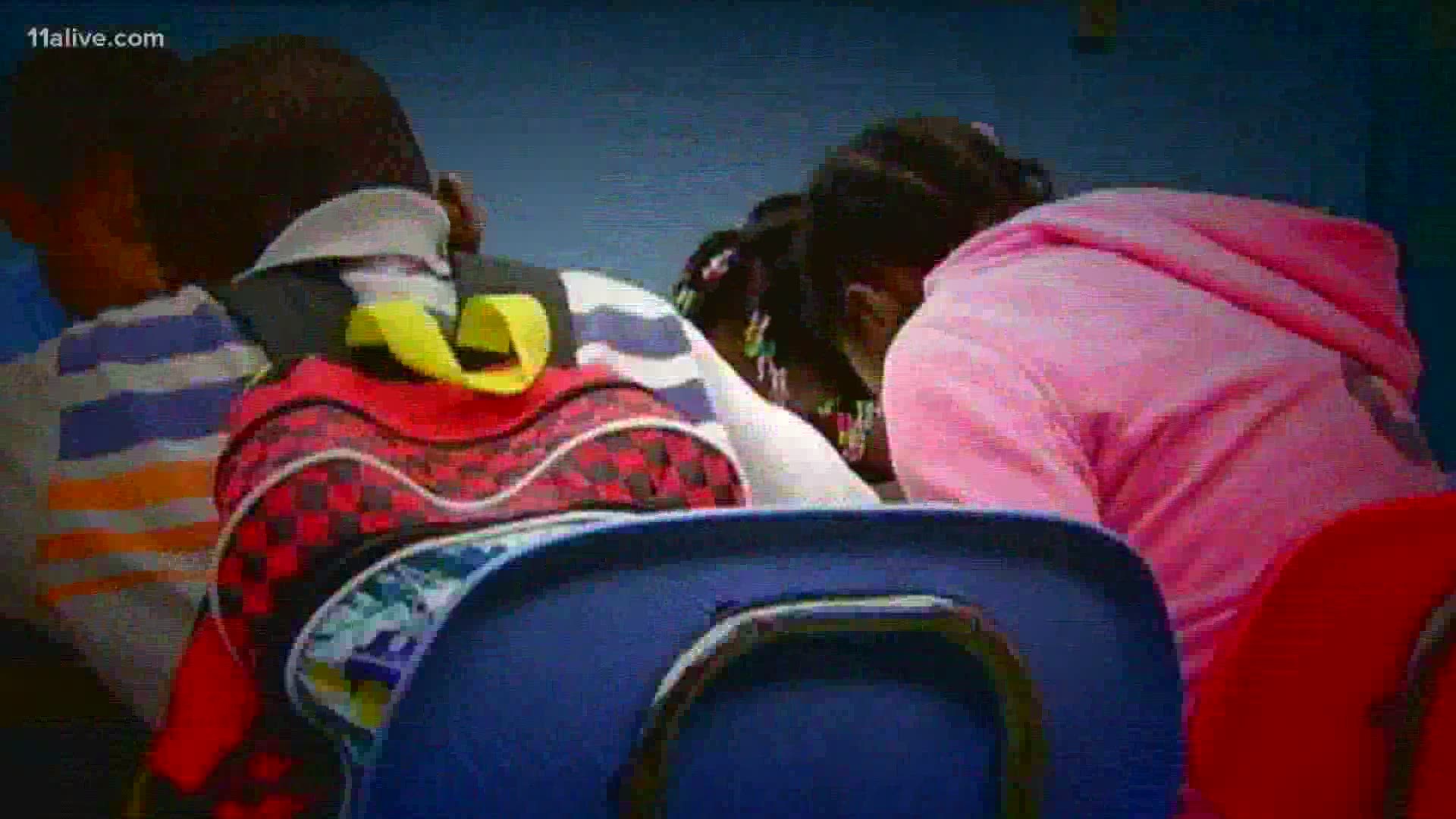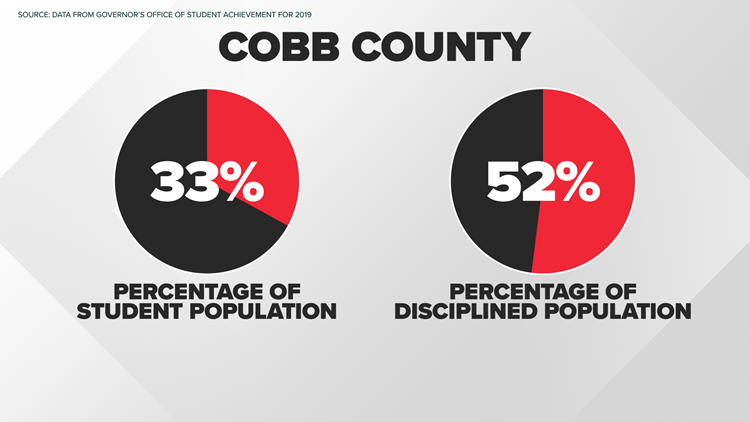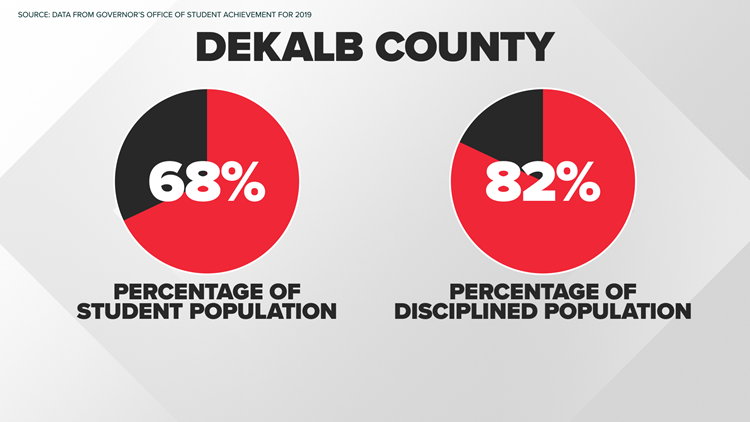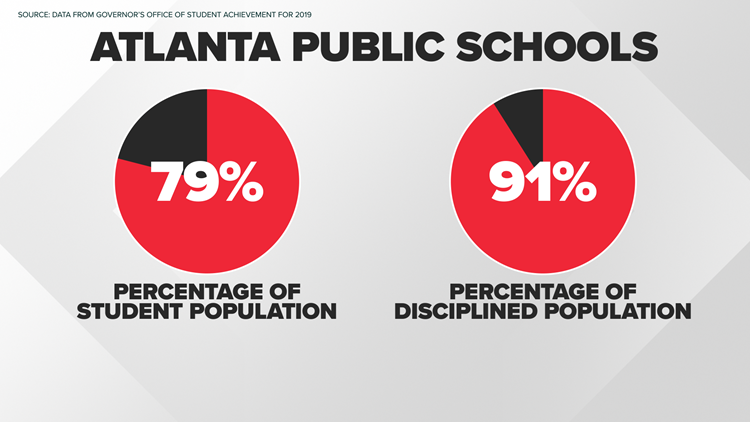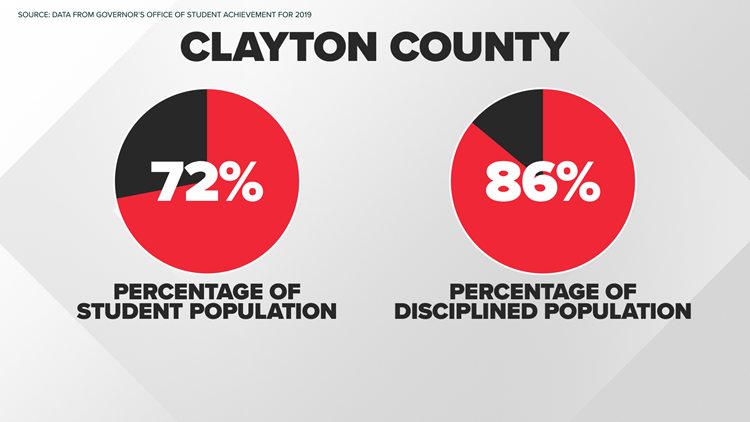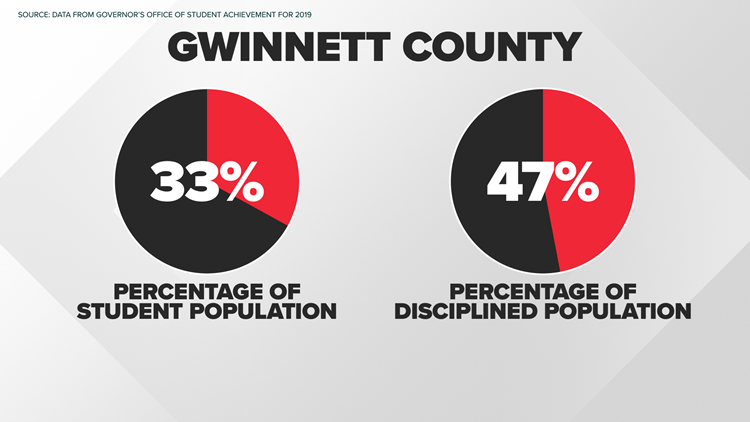ATLANTA — There are notable differences in the way Black students are treated by teachers and school administrators compared to other races.
Using data from the Governor's Office of Student Achievement (2019-2020), 11Alive took a close look at five of metro Atlanta’s largest school districts to break down student discipline by race.
The discipline ranges from detention, to removal from the classroom, to suspension or even expulsion.
The state data shows that Black students are punished more often and more severely than students of other races - even when they make up a smaller percentage of the student population. Here's what we found when examining some of the districts in metro Atlanta.
- In Cobb County, Black students make up 33% of the student population, but account for 52% of all disciplinary action.
- In DeKalb County, Black students make up 68% of the student population, but accounted for 82% of disciplinary actions.
- In Atlanta Public Schools, 79% of students are Black, but they account for 91% of disciplinary actions.
- In Clayton County, 72% of the students are Black, but they make up 86% of disciplinary action.
- And in Gwinnett County, 33% of students are Black, but they account for 47% of disciplinary actions taken.
The graphic in the slideshow below show the comparisons for each area where you can see the percentage of the student populations and disciplined populations.
State data shows Black students are punished more often than other races
For insight, 11Alive talked to Kennesaw State University Associate Professor Sheryl Croft about disciplinary actions in the classroom. She said when a student is disciplined and they don't understand, it's the same feeling as being wrongly accused.
"You have a disconnect between the teachers expectations for white students, and then expectations for Black students," Croft said.
She said cultural synchronization is key. The term is used to describe the necessary interpersonal context that should exist between teachers and African-American students.
The National Center for Educational Statistics shows that from 2017 to 2018, 79% of all teachers in America were white women.
Rahiem Shabazz, the director and producer of the three-part documentary "Elementary Genocide," said he only had a handful of Black teachers.
He said his relationships with his white teachers were different.
"It didn’t seem personal. I felt they addressed us as collective," he said. "With Black teachers, they would call my name, pull me to the side, have personal conversations with me."
Shabazz said he was labeled "a bad kid by the public school system." He said his short attention span, and a lack of interest in certain subjects was misinterpreted by teachers. He believes the differences in communication styles can play a big role.
"We speak in a certain vernacular, and they want us to to have a command of the 'queen’s language,'" Shabazz said. "In order to get our point across, we may speak in a louder tone, we may use hand gestures and things like that. If you’re Black and you do that, that’s perceived as being threatening."
"Many of our teachers today don’t see the African-American children as their future," Croft said. "If you don’t see our children as your future, why should you invest the time, why should you care about what happens to them on a grand scale?"
In a statement, Gwinnett County Public Schools said student behavior continues to be a topic of concern across the nation.
"Student discipline is a complex issue that often is oversimplified through the data lens," the statement said.
The district added that it recognizes that its student discipline data does include a disproportionate number of African-American students.
"That is something our district has focused on while balancing its responsibility to address inappropriate behavior," the district added. "Our district takes a progressive disciplinary approach, looking to implement a wide range of behavioral interventions to ensure students are able to learn in a safe, secure, and orderly learning environment."
They also said the district is intent on gathering feedback and seeking to make improvements.
"This has resulted in a move toward restorative practices, implicit bias training, and the implementation of social emotional learning supports and best practices," the statement reads.

